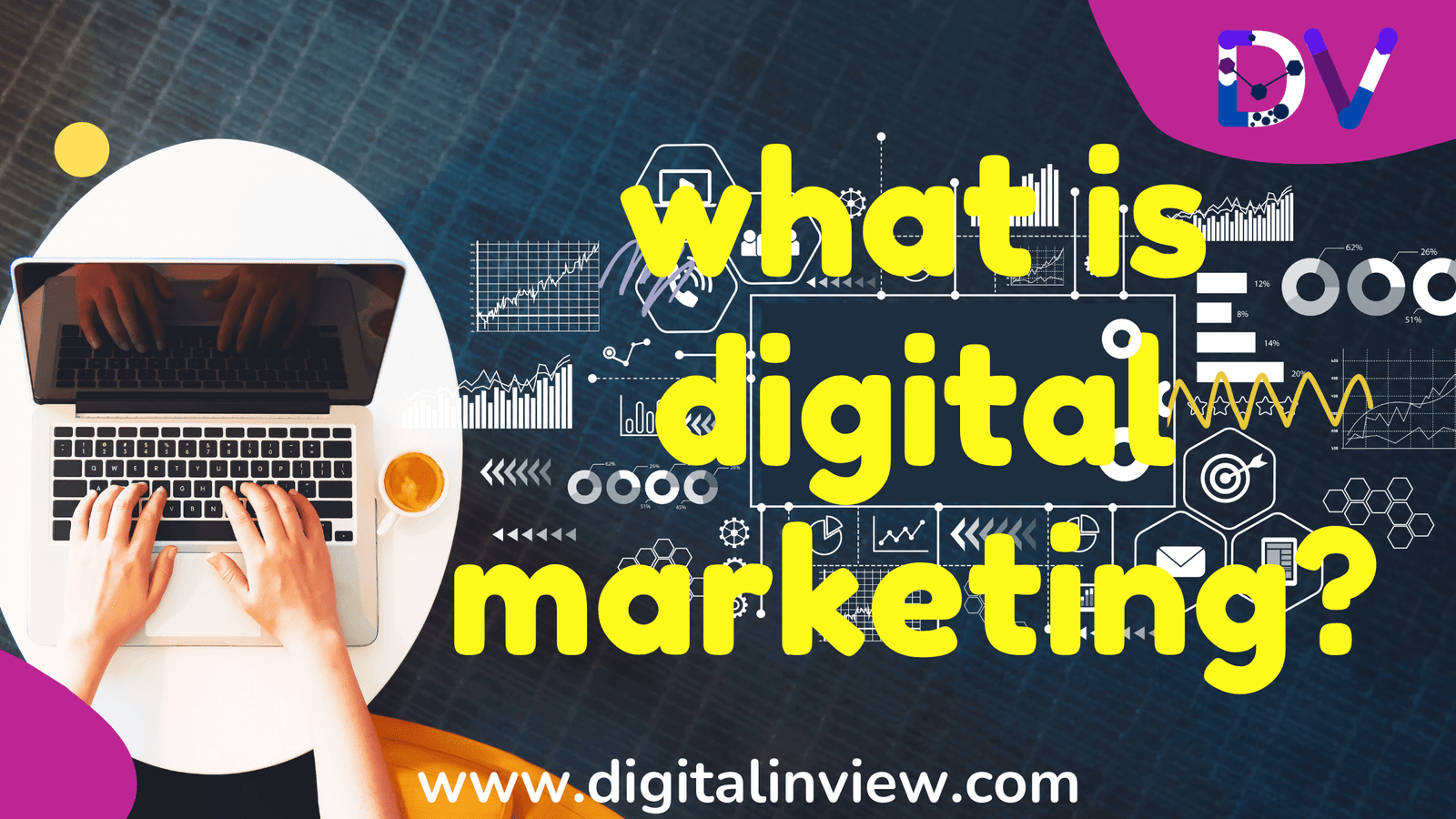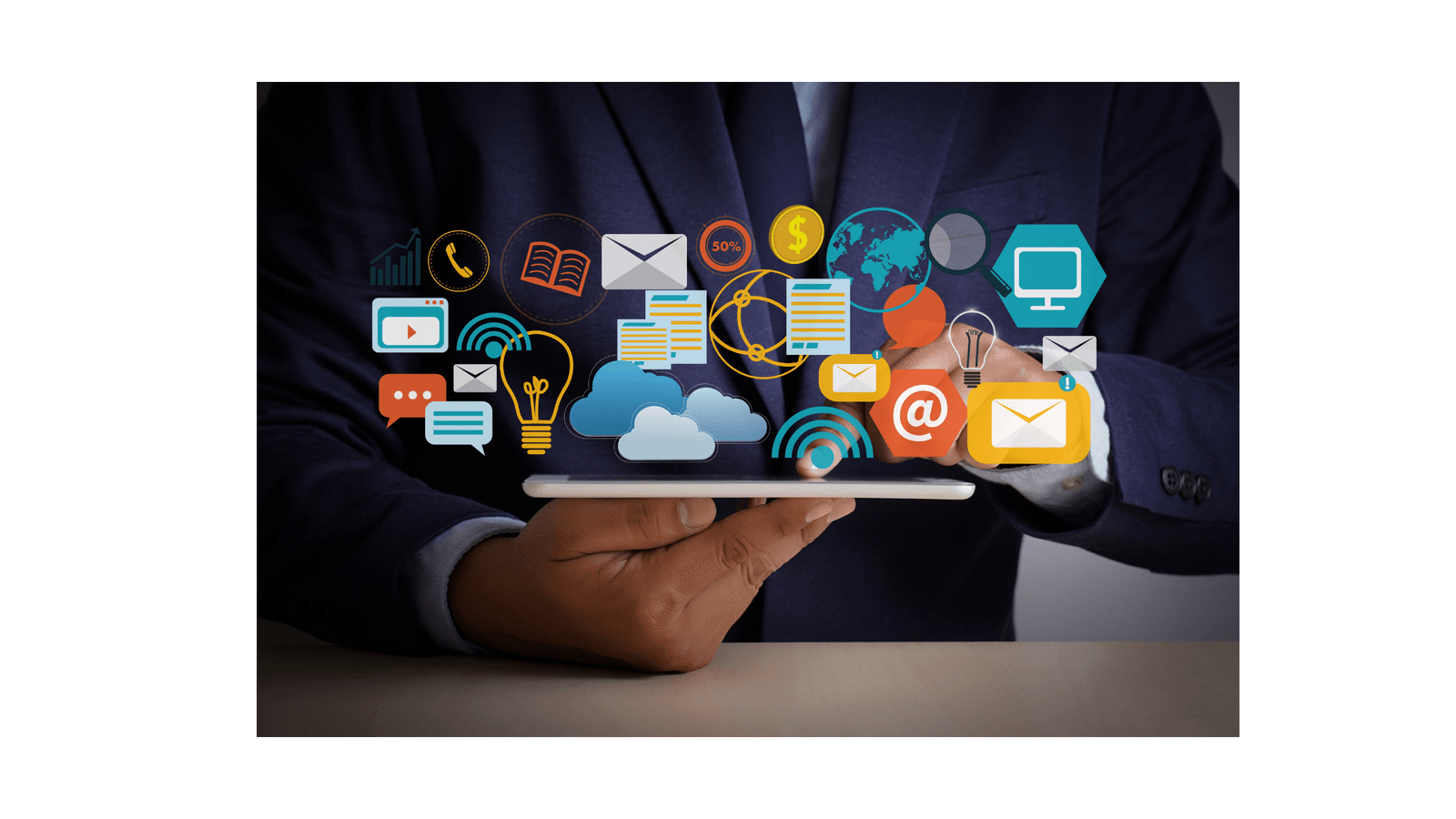
INTRODUCTION
At a fundamental level, marketing is the process of promoting brands, products, and services through several mediums in order to reach out and attract customers as well as satisfy their needs. The traditional marketing cycle, such as billboards, magazine ads, direct mails, and many others, was deeply rooted and incorporated in everyday life, into the business environment, and into marketing orientations and plans. However, with the upcoming and the explosion of digital technology, including the use and the widespread of electronic devices, businesses shifted into new marketing tactics. Thus, digital marketing becomes the new efficient and prevalent marketing nowadays.

WHAT IS DIGITAL MARKETING?
Digital marketing, also known as online marketing, is a major boon for businesses running for it promotes and advertises items, products, services, and brands to reach potential customers in a lucrative and appropriate manner through electronic devices, online channels, and other digital technologies.
Digital marketing plays an essential role and has become an intrinsic part of everybody’s life right from personal use to professional one. It is a way to keep your lives updated and help focus on a targeted audience with a global reach through digital marketing channels that include search engine optimization (SEO), social media, web-based advertisements, e-books, wireless text messages, pay-per-click, e-mail, podcasting, video streams, blogs, multimedia messages, optical disks, and many others. In addition, digital marketing can be done offline wherein it extends to non-internet channels such as SMS, callback, and on-hold mobile ringtones…
So, digital marketing encompasses all marketing efforts that use multiple platforms or focus all of its efforts on a single platform to grab customers’ attention and interest in the promoted services.
WHY IS DIGITAL MARKETING IMPORTANT?
Digital marketing is highly preferred by businesses and people for it offers a wide range of powerful marketing strategies, being the bridge that connects the advertising, marketing, and academic communities, as well as being a growing source of entertainment, information, social interactions, news, and shopping mainly. So, the keys supporting digital marketing lay behind the following:
- Engagement: at a standard point, by digital marketing means, you can connect to the audience globally by which it can reach out to anyone and anywhere as there are no geographical boundaries as well as targets the right audience at the right time.
You can connect with the audience by encouraging them to follow you on social media channels by which they will be able to view your content, stories, feeds, collaborations, and campaigns… So, keeping up-to-date and engaged with your customers and audience will gain their endorsement and trust so that they will apt to buy from your business for the next time.
So, maintaining a good relationship with customers helps to boost your business. Digital marketing offers a platform to interact with their customers and audience in which it helps in identifying their needs, solving issues about a certain product, answering their quires, satisfying them with lucrative offers or discount vouchers, which means that you can do more than just selling!
- Profitable and affordable: In comparison with other modes of marketing, digital marketing exposes you to a wider audience on a much smaller advertising budget. Marketing campaigns can be raised without a significant setback in budget, for example, posting pictures, videos, and content on social media, holding up email campaigns, collaborating and interacting on various digital platforms cost nearly nothing to produce.
In addition, digital marketing trends to be profitable by selecting the platform that will work best for you, your brand, and your quality of services. For instance, don’t advertise on LinkedIn when you’re not generating B2B interest and service or on TikTok just because it is trending.
- Measurable: Being measurable adds to the powers of digital marketing. With traditional marketing, it was almost difficult to measure the results of the marketing campaigns because You can measure everything worth measuring. For example, you can know how an ad is performing, veracity of the advertising campaign, how many people viewed the ad, how many sales resulted from the promotion, view insights, track your order, and ultimately ROI (return on investment). Google Analytics or digital marketing platforms make these metrics and measurements possible.
WHAT ARE THE TYPES OF DIGITAL MARKETING?
- Search Engine Optimization (SEO)
SEO is the practice of getting a business to rank higher on Google search results so that its pages can become easily findable, more relevant, and popular towards user search queries. It provides people with results to find their query and required information, whether looking for restaurants, reservations in a certain place, products, hotels, and others which offers you a valuable opportunity to receive traffic to your website.
- Pay-per-Click (PPC)
PPC is a digital advertising model by which the advertiser pays a certain amount or a payment each time one of their ads is clicked. So, once you’re no longer paying, the ad no longer exists. For example, PPC refers to paid advertisements and promoted search engines that appear at the top and sides of a page of search results, to the ads you see while browsing webs, to the ads before playing a game or opening YouTube videos as well as to other mobile apps. So like SEO, PPC is a way to increase traffic to your website.
- Content marketing
Content Marketing is a creative marketing strategy used to engage, retain, and attract an audience based on relevant and valuable content creation. All channels of digital marketing are highly dependent on content because quality content not only helps to boost sales, but also builds brand reputation, awareness, and loyalty. The content can be in the form of a blog, social media posts, e-books, educational articles, webinars, or a video. This form of marketing drives profitable customer action.
- Social Media marketing
Social media, a crucial part of the digital marketing strategy, is the process of creating content for social media platforms to build your brand, promote services and brands, increase sales, drive website traffic, and connect with your target audience. Some of social media platforms include Facebook, Twitter, TikTok, YouTube, Instagram, LinkedIn, Snapchat, …
- Email Marketing
Email marketing is the act of sending promotional messages and notifications via e-mails to target particular groups of customers or even specific individuals. it is a direct mail done electronically to make customers aware of new products, updates, discounts, new offers, and other actions.
- Affiliate Marketing
Affiliate marketing, also known as influencer marketing, has become a popular tactic in which a company compensates third-party publishers to generate traffic, drive sales, and generate revenues to the company. It plays a role in bridging the gap between consumers and organizations in which a company pays, for example, bloggers to advertise their products and generate sales.
For example, 81% of brands and 84% of publishers leverage the power of affiliate marketing, a statistic that will continue to increase as affiliate marketing spending increases every year in the United States.
CONCLUSION
Digital marketing has become an essential part of the business industry. It is an inexpensive, wide-reaching way to engage customers with your quality of services by using the Internet and other forms of digital communication. So, digital marketing can offer so much if you know how to implement it the right way. You gain the ability to measure your success and progress in real-time, while also being able to change your strategy quickly and according to the situation.

